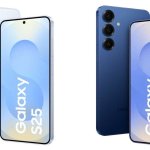SOPA Images/Getty Images
- Mercedes Bent is a Partner at Lightspeed Venture Partners and focuses on consumer, fintech, edtech investments.
- The window for retail investing is not over, and we’re just now entering a new generation of retail investment products.
- Apps like Robinhood help democratize the acquisition of wealth.
- See more stories on Insider’s business page.
Retail investing apps have been getting a bad rap lately. As the market leader, Robinhood has been a magnet for much of that criticism.
The company got a black eye when it restricted trading during the height of the GameStop trading frenzy in January, and it has stumbled a few times since then.
But all that negative publicity may have actually helped Robinhood. Downloads of its trading app topped 2.1 million in February.
That’s significantly lower than at the height of GameStop mania, but still 55% higher than in February 2020.
Of course, retail investing is about a lot more than Robinhood.
There’s now a rich ecosystem of apps fulfilling a wide spectrum of niches. There are other mobile-first trading apps like Stash and WeBull, investment social networks like Public and Alinea, women-centric services like Ellevest, and so on.
Mercedes Bent
The consumerization of investing has only just gotten started. And that’s a good thing.
The fact remains that retail investing is an immensely powerful tool for individuals to take control over their wealth. Millennials in particular are still woefully under-invested, relative to previous generations – just 3% of equities are owned by people born between 1981 and 1996.
People who choose to use Robinhood and apps like it are challenging the status quo and writing their own rules of what investing is all about.
Hype is not always irrational
Traditional investors like Warren Buffet warn against acquiring assets based on speculation and hype; they preach the gospel of “fundamentals.”
But hype is not always irrational; you can make a strong argument that it’s another indicator of perceived value. Do you know what other assets are based on perceived value? The money in your wallet.
As we watch our government lift our economy out of a recession simply by printing more money, it’s reasonable to ask, how much will fundamentals drive our economy moving forward?
At this point, we really have no idea.
Retail investors are saying, ‘We get to have a voice in determining what is and isn’t valuable.’ And as the recent surge of interest in non-fungible tokens (NFTs) has shown, investing is about a lot more than just stocks and bonds.
Buying fractional shares in trading cards (Mythic Markets), fine wine (Vinovest), collectibles (Rally, Otis), and other lifestyle assets are all reasonable options for investment.
Investing is not always about retirement
Millennials invest for different reasons than their parents did. They’re not necessarily looking to earn enough money to retire to an island in the Bahamas. Many invest in order to live more fully now. For this generation, retail investment is just as much about experience, entertainment, and education.
Research has shown us that millennials value experiences over material goods. They’d rather backpack across the Andes than buy a yacht. Playing the market in a gamified way fits into this desire for new experiences. Like it or not, investing has become another form of entertainment.
More important, most people in my generation have very little practical experience in investing. As of 2019, only 37% of affluent millennials said they felt knowledgeable about investing; more than 40% owned no stock at all.
I certainly wouldn’t recommend anyone bet their life savings on Tesla stock or convert their 401K to Dogecoin. Stock prices fluctuate over time; cryptocurrency is notoriously volatile.
But if people have the discretionary income to experiment and educate themselves about equities and cryptocurrencies, now is as good a time to start as any.
Investment apps are a solid investment
Robinhood changed how people invest and, as a result, how financial institutions respond to their customers. Some of the innovations it introduced – like commission-free trading, the ability to buy fractional shares, and its mobile-first mentality – are now table stakes for any new investment app that comes along.
Now the company is trying to change the rules again. Since the GameStop controversy, the company has been lobbying folks on Capitol Hill to advocate for real-time settlement. This would alter regulations about how much cash trading apps like Robinhood must keep on hand during settlement – the rules that led the company to suspend trading back in January.
I’m confident Robinhood will continue to challenge the norms of traditional investment, and that the company’s IPO later this year won’t be impacted negatively by the bad press it has received.
At Lightspeed Venture Partners, we’re bullish on the potential of retail investment apps. Just as apps like G-Suite, Rippling, and Gusto have made it much easier to start a small business and onboard employees, technology platforms like Alpaca and Galileo are making it easier for entrepreneurs to launch new investment startups.
Investing is going to become a much greater part of everyone’s consumer and entertainment experiences. People who’ve been reluctant or unable to invest in the past, such as women and people of color, will continue to participate in much greater numbers.
You can bet on it.
Mercedes Bent is a Partner at Lightspeed Venture Partners and focuses on consumer, fintech, edtech investments.
Powered by WPeMatico






